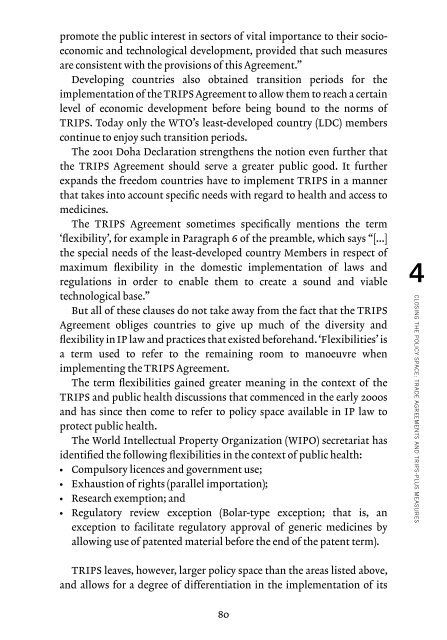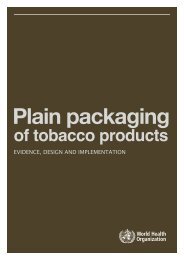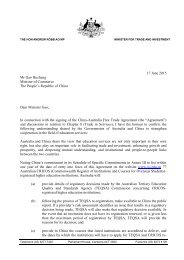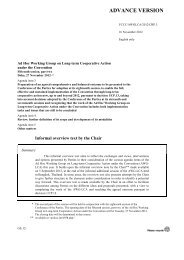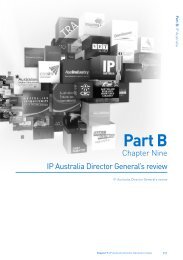PRIVATE PATENTS AND PUBLIC HEALTH
private-patents-and-public-health
private-patents-and-public-health
You also want an ePaper? Increase the reach of your titles
YUMPU automatically turns print PDFs into web optimized ePapers that Google loves.
promote the public interest in sectors of vital importance to their socioeconomic<br />
and technological development, provided that such measures<br />
are consistent with the provisions of this Agreement.”<br />
Developing countries also obtained transition periods for the<br />
implementation of the TRIPS Agreement to allow them to reach a certain<br />
level of economic development before being bound to the norms of<br />
TRIPS. Today only the WTO’s least-developed country (LDC) members<br />
continue to enjoy such transition periods.<br />
The 2001 Doha Declaration strengthens the notion even further that<br />
the TRIPS Agreement should serve a greater public good. It further<br />
expands the freedom countries have to implement TRIPS in a manner<br />
that takes into account specific needs with regard to health and access to<br />
medicines.<br />
The TRIPS Agreement sometimes specifically mentions the term<br />
‘flexibility’, for example in Paragraph 6 of the preamble, which says “[…]<br />
the special needs of the least-developed country Members in respect of<br />
maximum flexibility in the domestic implementation of laws and<br />
regulations in order to enable them to create a sound and viable<br />
technological base.”<br />
But all of these clauses do not take away from the fact that the TRIPS<br />
Agreement obliges countries to give up much of the diversity and<br />
flexibility in IP law and practices that existed beforehand. ‘Flexibilities’ is<br />
a term used to refer to the remaining room to manoeuvre when<br />
implementing the TRIPS Agreement.<br />
The term flexibilities gained greater meaning in the context of the<br />
TRIPS and public health discussions that commenced in the early 2000s<br />
and has since then come to refer to policy space available in IP law to<br />
protect public health.<br />
The World Intellectual Property Organization (WIPO) secretariat has<br />
identified the following flexibilities in the context of public health:<br />
• Compulsory licences and government use;<br />
• Exhaustion of rights (parallel importation);<br />
• Research exemption; and<br />
• Regulatory review exception (Bolar-type exception; that is, an<br />
exception to facilitate regulatory approval of generic medicines by<br />
allowing use of patented material before the end of the patent term).<br />
4<br />
CLOSING THE POLICY SPACE: TRADE AGREEMENTS <strong>AND</strong> TRIPS-PLUS MEASURES<br />
TRIPS leaves, however, larger policy space than the areas listed above,<br />
and allows for a degree of differentiation in the implementation of its<br />
80


